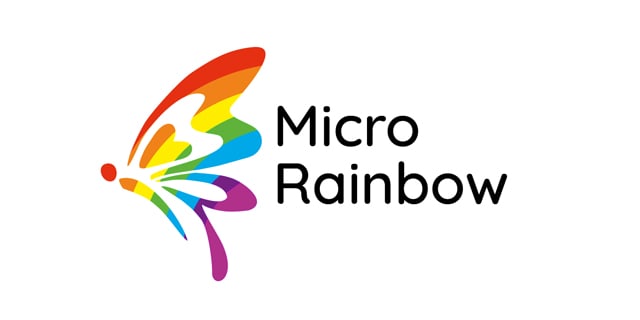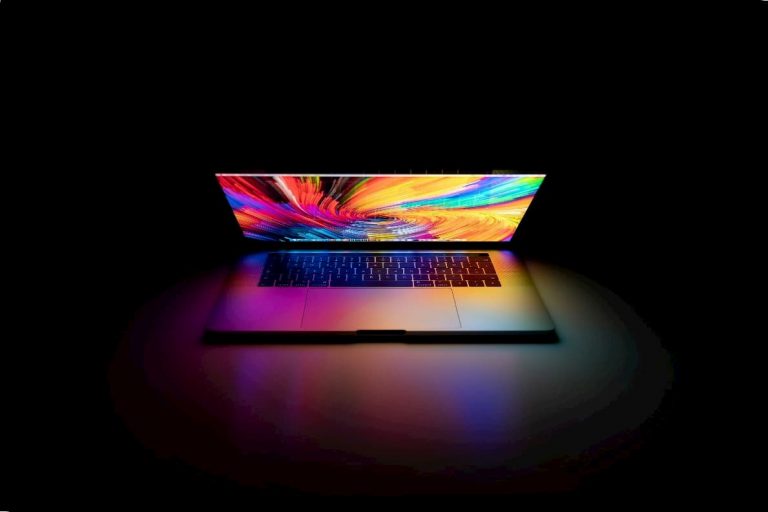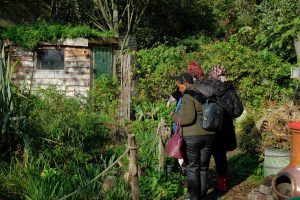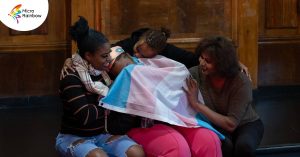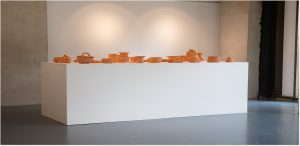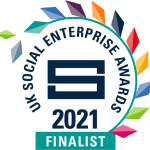Background
Micro Rainbow works with around 400 LGBTQI migrants every year providing them with a holistic approach to integration that has three pillars: housing, social inclusion and moving on support.
During “normal” times LGBTQI migrants face homelessness, social exclusion and poverty.
At this critical time, Micro Rainbow is aware that the LGBTQI migrant community faces increased challenges as a direct result of measures to prevent the spread of COVID-19. We have received more requests for housing as many LGBTQI migrants have lost their jobs in the informal sector and, as a result their homes too. Many were also living with friends who, since the COVID-19 pandemic started and social distancing became a necessity, have asked them to leave.
Widespread poverty amongst LGBTQI migrants is connected to their immigration status. Many do not have savings and are experiencing food poverty. Asylum seekers live on just over £39 a week and cannot afford to stockpile or to order online and pay delivery fees. Having enough food or money for medicines has become a recurrent issue during COVID-19. Recently, the UK Government increased the allowance that asylum seekers receive by £0.26p per day, which made no real impact on their welfare.
Digital poverty of LGBTQI migrants
During this pandemic, LGBTQI migrants are often alone with no support. They cannot afford phone contracts and use pay-as-you-go systems or contracts with limited data. They cannot go to the places where they usually access free WIFI because of COVID-19 and no spare cash to top up their phones.
Digital poverty compounds the negative effects of homelessness, isolation and poverty with serious consequences. Here are the most common that Micro Rainbow’s beneficiaries are experiencing:
- They cannot search for the nearest shelter or food bank if they are in an emergency situation. This means that some will have to sleep rough or go without food for some time. It means that they will be more at risk of violence and abuse, especially trans migrants. It also means that they are at higher risk of contracting and spreading the COVID-19 virus.
- They cannot stay connected with their lawyers or the Home Office. Their immigration status is being decided in the immigration courts and being able to access their legal representatives is crucial for the success of their cases. During the pandemic, the Home Office made several changes to the asylum procedures. This added a level of uncertainty and anxiety to many LGBTQI migrants who might have been waiting years for a decision.
- Poorer mental health. Pre-COVID-19, LGBTQI migrants were already extremely isolated as they do not benefit from the support of co-nationals or family members due to their sexuality, gender identity or intersex status. Because of their digital poverty during COVID-19, LGBTQI migrants cannot stay entertained or in contact with their few friends and support networks like Micro Rainbow. The uncertainty around people’s legal cases leads to panic and desperation. These factors contribute to depression and poorer mental health.
Based on this understanding gained from our beneficiaries, Micro Rainbow decided that tackling digital poverty was paramount during the pandemic.
How Micro Rainbow tackled digital poverty
The most immediate and cost-effective response for Micro Rainbow was to equip our 11 safe houses with unlimited WIFI and laptops. Thanks to the generosity of various funders we have been able to secure:
- yearly WIFI subscriptions which will benefit between 50 and 80 LGBTQI asylum seekers every year,
- a laptop for each safe house so that people can continue to work on their immigration cases,
- funding to top-up people’s mobile phones whenever they need to engage with Micro Rainbow or are in an emergency.
We expect 1,000 to 2,000 LGBTQI migrants will benefit from this extra support over the next few months. Our Outreach Officers keep in close contact with our beneficiaries and phone them regularly to monitor their access to online services.
However, our work would still have been limited if we had not worked with various local partners to get asylum seekers online. For example, we worked with The Leeds Migration Partnership, Leeds Refugee Forum and PATH Yorkshire who secured funding from ‘100% Digital’ and the West Yorkshire Police and Crime Commissioner to help get asylum seekers online. Thanks to this partnership we were able to connect three households to the world wide web in just one week. Thanks to support from Birmingham City Council we were also able to provide mobile data to LGBTQI asylum seekers in the West Midlands.
As a result of being able to get LGBTQI migrants online we could digitise two of our three programmes, continuing to provide vital support to vulnerable LGBTQI migrants.
Digital social inclusion programme
In response to the COVID pandemic we have digitised our popular social inclusion programme for LGBTQI asylum seekers and refugees. Before COVID-19, this programme was based on physical interaction and in-person meetings (both one-to-one and groups), attended by 300 to 400 LGBTQI asylum seekers every year. Since COVID, we have been providing one-to-one support and advocacy to dozens of LGBTQI people on the phone. We have moved our group activities online and are still able to offer mindfulness workshops, group pastoral care, drawing classes, yoga and much more. Thanks to a grant from the Paul Hamlyn Foundation we are also designing an experimental digital body movement programme that will inform our service delivery of social inclusion activities in case of a second wave of the COVID-19 virus.
At these critical times, exercise and positive connection are more important than ever. None of this would have been possible without tackling digital poverty.
Digital moving-on programme
The transition from being an asylum seeker to becoming a refugee is frequently problematic. Once LGBTQI asylum seekers are granted refugee status they often feel lost and alone, not knowing how to begin again. This is usually the critical time when, knowing they will not be sent back, they first begin to deal with the persecution that led to their leaving and the resulting pain and loss.
At times when many matters are uncertain (legal status, length of the immigration process, health, livelihood, housing) Micro Rainbow feels it is important not only to tackle isolation, but also to continue to build people’s hope and skills for the future. That is why we decided to run a series of “Moving On” webinars, some in collaboration with our corporate partners.
These webinars include:
- employability workshops on CV writing and job search,
- accessing education,
- myths and realities about working and accessing volunteer opportunities.
- legal workshops run by immigration lawyers on citizenship,
- indefinite leave to remain,
- alternatives to asylum and evidence gathering for asylum claims.
As with the social inclusion programme, these activities are only accessible because we have been able to ensure the digital inclusion of LGBTQI migrants.
Recommendations
Home Office housing providers should equip their accommodation with WIFI for all asylum seekers. This will allow vulnerable migrants who live in poverty to stay connected with key services including their lawyers and the Home Office and their support networks.
Funders should consider giving flexible grants that enable community support organisations to top up their beneficiaries’ mobile phones. This will enable them to search for shelters and food banks but also to stay connected with supportive services and people.
Given the uncertainty around how the pandemic will unfold in the near future, funders should also consider funding and evaluating experimental projects that explore and develop new digital delivery methods.
In delivering digital support services organisations should consider if their beneficiaries have access not only to mobile data and the relevant hardware (smart phones/tablets) but also to a safe space from which they can join without fearing, for example, being outed to strangers.
In conclusion
Most of us take our smart phones, or Netflix subscription or even access to YouTube for granted. They have helped many of us to stay connected with family and friends, to keep strong during a tough period. They have helped our mental health and enabled us to work, volunteer or find hobbies. While doing this, most of us still had food on our tables and did not have to choose between one or the other. LGBTQI migrants do not have this luxury. With £39 a week they must choose between food or a little bit of shelter. There is no money to have social connections and support. The recent £0.26p increase by the UK Government has been seen as an insult during what was already a difficult situation for LGBTQI migrants. Without the critical work of Micro Rainbow and many other organisations in tackling digital poverty, the most vulnerable groups in our society would not only remain excluded but also run a higher risk of contracting COVID-19.
Thank you to HEAR Equality and Human Rights Network for supporting this case study.
